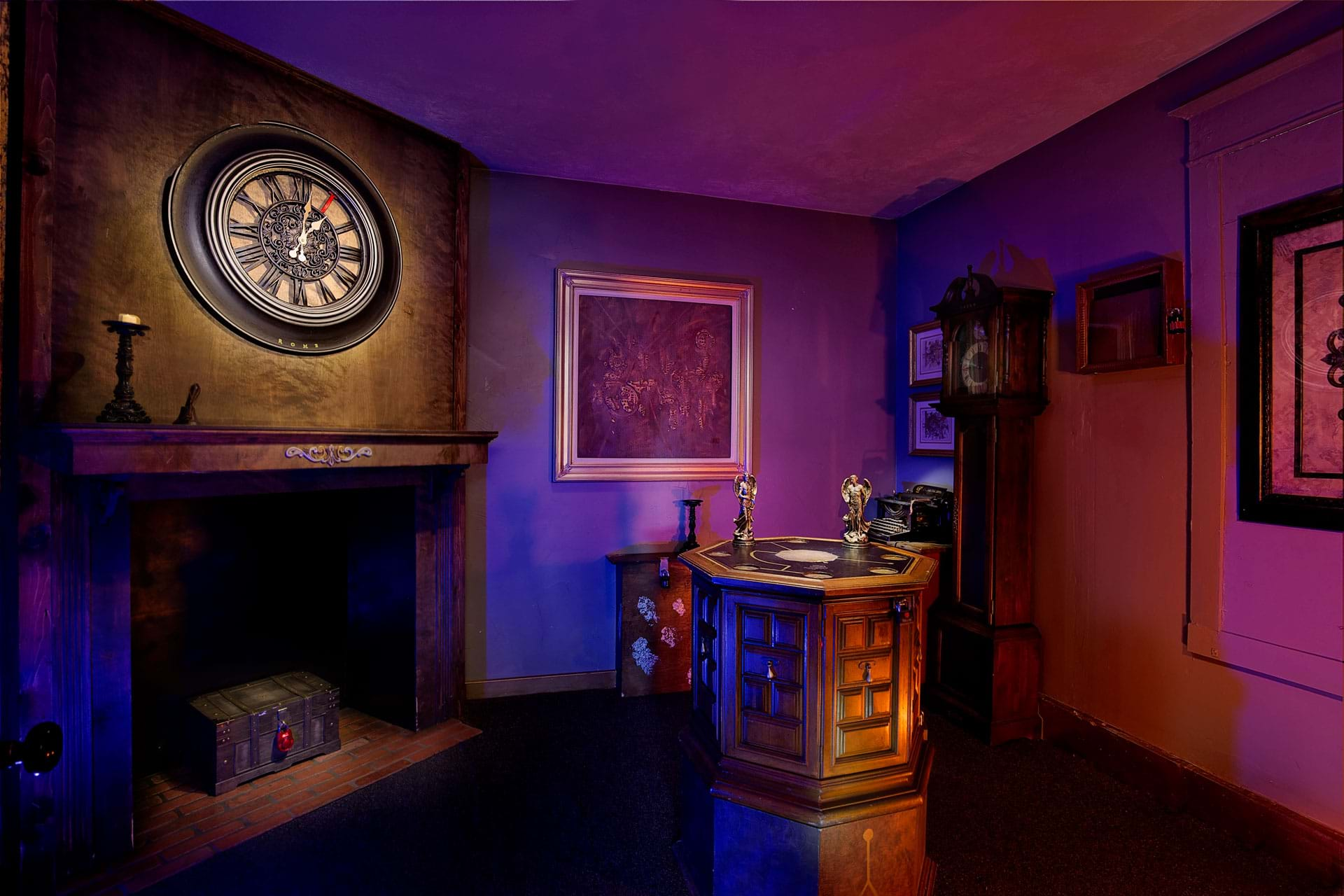Team Tasks at Minneapolis Escape Room-- Perfect for Pals and Family members
Team Tasks at Minneapolis Escape Room-- Perfect for Pals and Family members
Blog Article
Group Strategies: Exactly How to Team up Efficiently in a Getaway Room
Teams should proactively listen to each participant's insights, appoint roles that straighten with private strengths, and preserve normal check-ins to make sure emphasis and avoid redundancy. By promoting an atmosphere that values cohesion and adaptability, groups can dramatically heighten their performance and success prices.
Establish Clear Interaction

To promote clear interaction, it is vital to mark a central point of call for info dissemination. Brief, concentrated updates from each group member can maintain the group notified without overwhelming them with details.

Appoint Functions Strategically
While clear communication sets the foundation for efficient teamwork, assigning duties tactically makes sure that each group member's strengths are used successfully. In a getaway room situation, the time-sensitive and complicated nature of difficulties demands a well-organized technique to job delegation. By identifying and leveraging private proficiencies, groups can optimize their analytical capabilities and boost general efficiency.
First, examine the unique skills and qualities of each participant. Somebody with an eager eye for information might stand out in finding surprise objects, while a logical thinker can be better fit to resolving problems. It's just as important to have a leader who can manage development, take care of the timeline, and make definitive telephone calls when necessary. This duty typically calls for solid business and social abilities.
2nd, ensure that functions are flexible and adaptable. As new difficulties emerge, the team must have the ability to pivot, reapportioning jobs as required. This adaptability helps keep momentum and prevents bottlenecks that might happen due to stiff duty jobs.
Ultimately, a calculated technique to duty job not just makes the most of the toughness of each group participant but likewise cultivates a cohesive environment, driving the team towards a successful retreat.
Use Diverse Abilities
Acknowledging and using the varied abilities within your group can significantly boost your performance in a retreat space. Each group participant brings distinct toughness to the table, and properly leveraging these capacities can accelerate problem-solving and improve general performance. A group participant with solid logical skills may stand out at decoding complex codes or patterns, while one more with eager empirical capacities my response might promptly find surprise clues that others might forget.
Encourage group participants to articulate their understandings and concepts promptly, ensuring visit their website that all possible options are considered. In addition, appointing tasks that line up with each member's strengths can protect against bottlenecks and ensure that progression is continuous.
Additionally, variety in abilities often converts to diversity in assuming styles, which is important in a getaway area setup. While some challenges might require logical reasoning and accuracy, others might gain from creative and association of ideas. By recognizing and leveraging this variety, groups can deal with a wider array of obstacles extra properly, thereby raising their chances of a successful getaway.
Manage Time Properly

First, assign initial mins for a quick survey of the room. Identify visible puzzles and separate jobs based on employee' toughness, making certain that no one is idle. Establish inner time checkpoints to examine development periodically; as an example, purpose to have half the problems resolved by the mid-point of the game. official site This technique can aid maintain the group concentrated and avoid time from slipping away undetected.
Furthermore, avoid one-track mind. If a problem is taking as well long, rotate staff member or go on to one more challenge, returning later on with fresh perspectives. Interaction is extremely important-- keep everyone upgraded on solved puzzles and continuing to be tasks to stay clear of redundant initiatives.
Last but not least, use any kind of tips or clues sparingly yet strategically - best escape room. Recognizing when to ask for assistance can conserve valuable time. By adhering to these time administration principles, teams can considerably boost their chances of an effective and delightful escape area experience
Debrief and Reflect
Representation is an essential facet of group growth and improvement in the context of escape spaces. When the obstacle is completed, whether effectively or not, it is vital for the group to take part in a structured debriefing session. This procedure enables employee to evaluate their efficiency, recognize toughness, and determine locations for renovation.
Start the debrief by discussing what worked out. Highlight specific instances of effective communication, analytical, and cooperation. Identifying these favorable actions enhances them and motivates their repeating in future obstacles.
Review minutes of complication, miscommunication, or inefficient methods. Motivate an open and constructive dialogue where team members can share their point of views without anxiety of objection.
Verdict
In final thought, effective partnership in an escape area is based upon clear communication, strategic function jobs, the effective use of varied skills, and efficient time monitoring. By developing a cohesive and adaptive group environment, the likelihood of successfully addressing problems and attaining the objective of running away the room is substantially enhanced.
Report this page